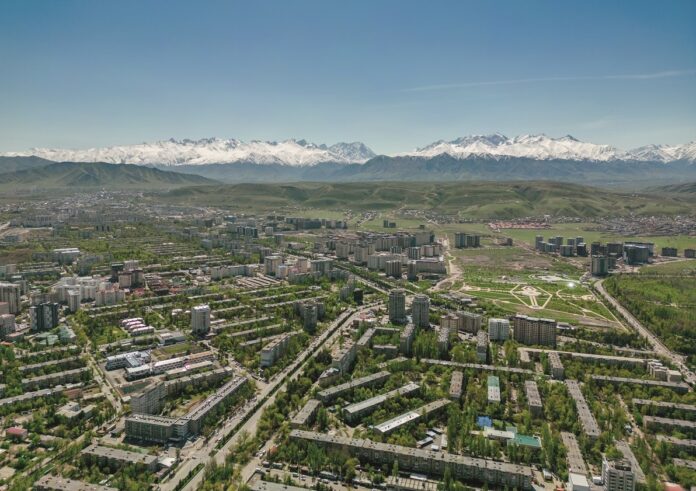Milica Velimirović describes an international project that is drawing together leading experts with the aim of developing mechanisms for the delivery of equitable water allocation.
Coordinated by the Technical University of Munich (TUM), the WE-ACT project brings together industry, policy, government, research, academic, technical, and scientific leaders from Europe and Central Asia to collaborate on the next generation of climate sensitive water resource allocation planning and management. It is anticipated that the WE-ACT project will be a gamechanger in transboundary water allocation and management by introducing a Decision Support System (DSS) that optimises shared benefits and enhances resilience in the face of a rapidly changing climate.
With a €5.2m budget co-funded by the European Commission’s Horizon Europe programme, the project prompts a paradigm shift towards climate sensitive water allocation systems and financing mechanisms. The project, which began on 1 January 2023, will run for four years.
Ambitious goals
Some of the key objectives of the project are to:
- Increase understanding of the water balance during periods of water stress and enable water management authorities to actively manage and transparently communicate the allocation decisions made;
- Present unique information architecture for transboundary water allocation planning and management, contributing to understanding of climate risks and development, and deployment of digital technologies. The aim is for future water allocation planning to be the result of a combination of water balance assessments and glaciological analysis, enabling integration of changing weather patterns into short- and long-term applications of the WE-ACT DSS, including understanding of the consequences of climate change on water availability and water demand;
- Enable decision-makers in the transboundary Naryn-Kara Darya River basin to take well-informed decisions in a transparent manner;
- Invest in stakeholder engagement and institutional analysis to prepare well-enshrined policy dialogues on efficient water use across sectors and countries;
- Develop the DSS to receive information on the environmental sustainability, economic efficiency and social equitability of water footprints.
Hydrometeorological monitoring in Uzbekistan and Kyrgyzstan
In April 2023, the partners embarked on a mission to Uzbekistan and Kyrgyzstan to evaluate the requirements for hydrometeorological monitoring and propose solutions to enhance water management practices in the region. Their focus was on upgrading, modernising – or establishing – new installations.
During the summer, project partners made several visits to the Central Asian Region. They engaged in fruitful meetings with significant entities, including the Central Asian Interstate Commission for Water Coordination (ICWC), the Syr Darya Basin Water Organization, and the Uzbekistan Hydromet. This led to a collaboration with the Basin Irrigation System Authority for the Andijan Region, responsible for water allocation in the vital Fergana Valley.
The valley lies mainly in eastern Uzbekistan, but also extends into southern Kyrgyzstan, and is a primary aquicultural region in the WE-ACT project’s demonstration catchment. The fertility of the valley is due to the rivers Naryn and Kara Darya, which join to form the Syr Darya river.
Central Tien Shan hydrological installation
Further activities involved researchers from the University of Fribourg in Switzerland, the Central Asian Institute of Applied Geosciences (CAIAG) and the Kyrgyz Hydromet, both in Kyrgyzstan, visiting glaciers in the Central Tien Shan mountains, in Central Asia, to conduct a hydrological installation, resulting in the acquisition of initial data. From 11-15 September, a series of significant events was also organised, bringing together experts, stakeholders and community leaders to address the severe water concerns in the region.
Bishkek workshop
The first workshop, ‘The stakeholder workshop on water resources in Central Asia under a changing climate’, held in Bishkek, the capital of Kyrgyzstan, served as a dynamic forum for comprehensive discussions on water resources management. Enlightening presentations covered the changing climate’s impact on water resources in Kyrgyzstan, rational water use in Central Asia, and the influence of buried ice on river runoff in the Northern Tien Shan.
Sessions delved into crucial aspects of the project, exploring topics such as the data supply chain, the DSS system, and stakeholder engagement with cross-border policies for sustainable benefit sharing.
Osh workshop
A second event, the ‘Stakeholder Consultation workshop: Navigating water allocation in a changing climate’, took place in Osh, the second-largest city in Kyrgyzstan. This facilitated an intersection of expertise in the efficient allocation of water resources in the Syr Darya river basin.
The workshop brought together influential figures, including representatives from the Osh City mayoral administration, the delegation of the EU to Kyrgyzstan, the Osh Basin Water Authority, and experts from SIC-ICWC and the Syr Darya Basin Water Organization. Interactive sessions covered stakeholder engagement, crafting water information systems, and cross-sectoral cooperation, fostering collaborative discussions and sharing of insights among participants.
Presentations encompassed areas such as the modernisation of hydrometeorological monitoring networks, water availability assessment, water footprint assessment, integrated modelling, the development of a DSS for water allocation, transboundary stakeholder engagements, and the dissemination of project findings.
This Stakeholder Consultation workshop served as a crucial platform for knowledge sharing, collaboration, and the development of sustainable solutions for efficient water allocation in the Syr Darya river basin.
The WE-ACT project remains committed to addressing the water resource challenges posed by climate change and ensuring a sustainable future for the region.
To conclude this impactful event, a two-day internal meeting was held to share progress and plan future steps. The overall insight gained was that stakeholders expressed a keen interest in future projections, emphasising the need to establish ongoing contact and gather useful data from the project. •
The author
Milica Velimirović is WE-ACT communications manager
More information, see: weact-project.eu








